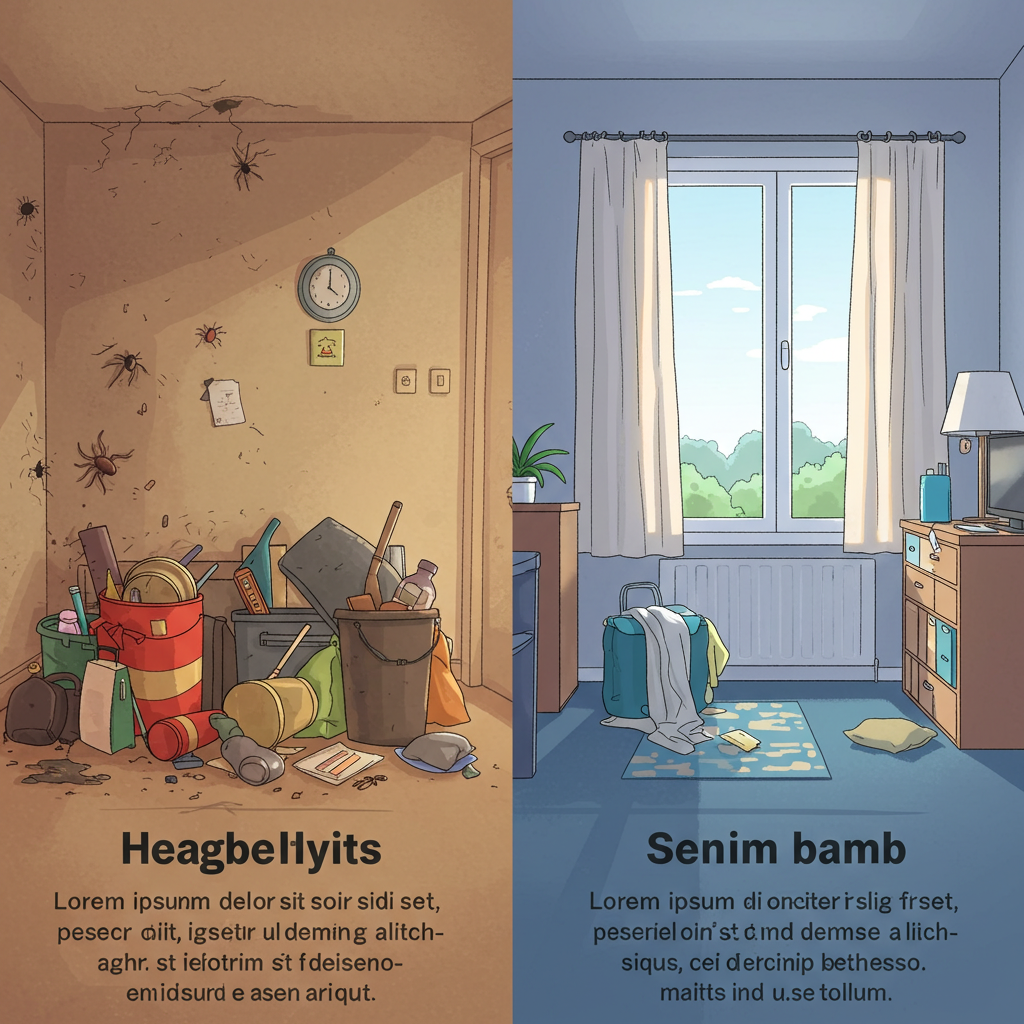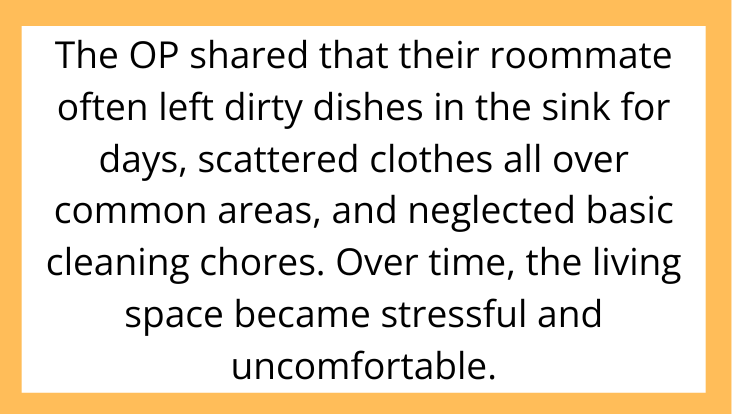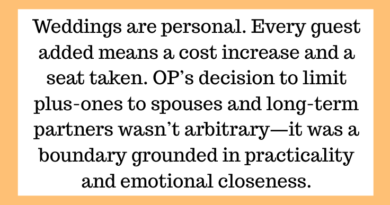AITAH for Telling My Roommate to Clean Up After Their Mess for the Last Time?
Living with roommates can be an adventure filled with fun memories — and sometimes, serious frustrations. Recently, a Reddit user posted in r/AITAH asking if they were the bad person for finally telling their messy roommate to clean up after themselves once and for all. This simple request turned into a big conflict, sparking a debate about responsibility, communication, and boundaries in shared living spaces.
In this blog post, we’ll explore why setting cleanliness boundaries is important, how to approach roommate conflicts without escalating tension, and whether demanding tidiness can make you “the bad guy.”
The Scenario: When Messiness Crosses the Line

The OP shared that their roommate often left dirty dishes in the sink for days, scattered clothes all over common areas, and neglected basic cleaning chores. Over time, the living space became stressful and uncomfortable.
After multiple polite reminders, OP reached their breaking point and bluntly asked the roommate to start cleaning up or face consequences. The roommate reacted angrily, accusing OP of being controlling and overbearing.
Now, OP wonders if they handled things poorly and if they were justified in demanding a cleaner home.
Why Cleanliness Matters More Than Just Aesthetics

While everyone’s tolerance for mess varies, shared living spaces come with shared responsibilities. Cleanliness impacts:
-
Health: A dirty environment can cause allergies, pests, and sickness.
-
Mental wellbeing: Cluttered spaces increase stress and decrease productivity.
-
Respect: Cleaning up shows respect for your roommates and shared space.
Ignoring messes can breed resentment and damage friendships, making addressing the issue essential.
How to Address Messiness Without Burning Bridges

Approaching roommate issues requires balance. Here are some tips:
-
Communicate early and clearly: Set expectations about chores when you move in.
-
Be specific and kind: Instead of “clean up,” say “please wash dishes after eating.”
-
Create a chore schedule: Rotate responsibilities fairly.
-
Offer to help: Sometimes pitching in together encourages teamwork.
-
Pick your battles: Decide which messes really matter to avoid constant conflict.
By focusing on cooperation, you can keep the peace while maintaining a clean home.
Is Being Firm “Controlling”?

Some people view direct requests about cleanliness as controlling behavior. But setting boundaries is about respect, not control. Everyone deserves a living environment where they feel comfortable and valued.
The key is tone and consistency: rude ultimatums can alienate, while calm requests with explanations are easier to accept.
What Did Reddit Think?

Responses to the OP’s post were mixed. Many supported OP for standing up for their needs and preserving their sanity. Others sympathized with the roommate, suggesting OP might have been too harsh or impatient.
The consensus? Communication and mutual respect are the foundation of any successful roommate relationship.
Final Thoughts: When Setting Boundaries Is Healthy

Asking your roommate to clean up after themselves doesn’t make you the bad guy. It makes you someone who values a healthy, respectful home. Living together requires compromise, clear expectations, and sometimes tough conversations.
If you face similar issues, remember:
-
Your comfort matters.
-
Boundaries help maintain friendships.
-
Honest communication prevents resentment.



